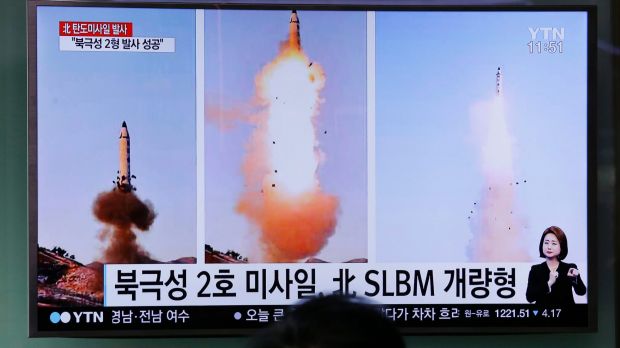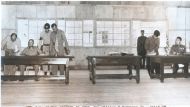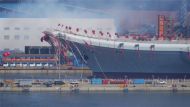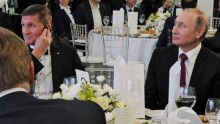America is the world's undisputed military superpower but it faces a strategic conundrum over North Korea's nuclear intentions.
The bind is this: there may be no morally acceptable military option to de-nuclearise the Korean peninsula, even as Washington parades that very eventuality.
More World News Videos
North Korea: from ceasefire to nuclear threats
How a ceasefire signed more than six decades ago has failed to deliver stable peace and allowed nuclear tensions to escalate.
It's a situation of some powerlessness and yet one the United States has done much to create over the years, both with the development of its own nuclear arsenal - which, let's not forget, kicked off this whole global proliferation race - and with its past mercurial responses to states with nuclear aspirations.
Think the Soviet Union, China, Iraq, Iran, Libya, Israel, Pakistan, and India. The telling thing about this list is the inconsistency of the American response. Others would call it hypocrisy.
This history may well be under-appreciated in the current stand-off, although presumably not by Kim Jong-un. Indeed, he would note that pariah states such as Iraq and Libya might not have been attacked had they already possessed nuclear weapons. Who knows? Saddam Hussein and Muammar Gaddafi may still be in power.
For the militaristic Kim, whose brutal garrison state is bordered by nuclear-armed Russia and China, and corralled to its south and east by US-aligned South Korea and Japan, personal survival and the nuclear deterrent may be interdependent.
While opinions differ, it is broadly accepted that a pre-emptive strike on the rogue nation's nascent nuclear program - an attack designed to stop dead its transition to an intercontinental ballistic missile capability - could not be certain of fully identifying, much less completely destroying, the DPRK's nuclear assets.
In this sense, the US is in a similar position to that it confronted over Saddam Hussein's putative chemical weapons of mass destruction: a decision based on partial information at best (or lies), to forestall future aggression.

The existence of North Korean weapons of mass destruction is not in doubt - even if doubts do exist as to their number, their precise distribution, and the country's progress towards full nuclear operability.
As always, intelligence is imprecise, incomplete.

What appears to be more certain though is that a US-led assault would risk mass casualties in Seoul. South Korea's bustling capital lies just 56 kilometres from of the demilitarised zone.
Short of the military strike option, two other possibilities may reveal themselves in the medium term, one more likely than the other: a successful diplomatic effort, presumably fashioned by Beijing, to convince Pyongyang to voluntarily abandon its nuclear ambitions, or, a nuclear capable DPRK with intercontinental reach - including potentially, to northern Australia.

Could the world live with that?
















16 comments
Comment are now closed